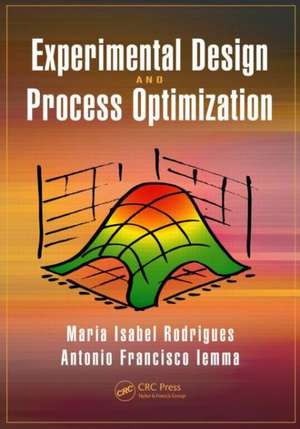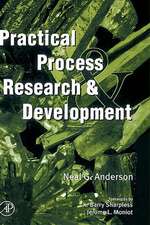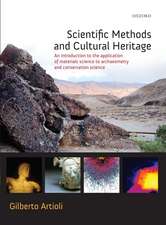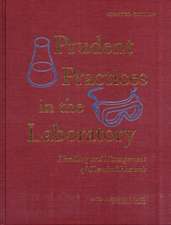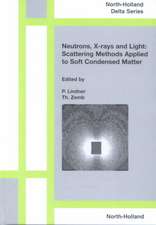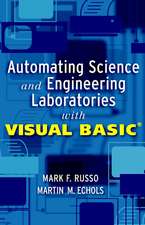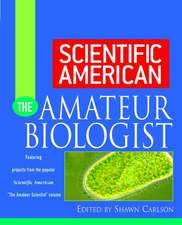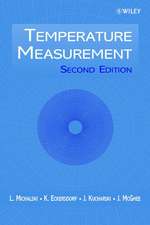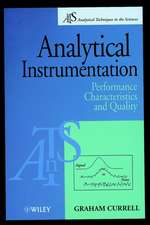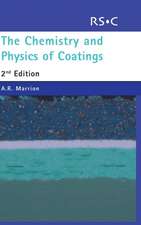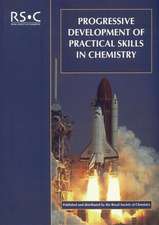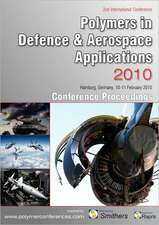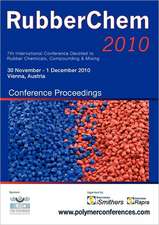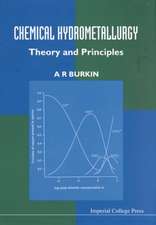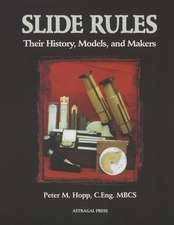Experimental Design and Process Optimization
Autor Maria Isabel Rodrigues, Antonio Francisco Iemmaen Limba Engleză Hardback – 11 dec 2014
The book covers the essentials of statistical science to assist readers in understanding and applying the concepts presented. It also presents numerous examples of applications using this methodology. The authors are not only experts in the field but also have significant practical experience. This allows them to discuss the application of the theoretical aspects discussed through various real-world case studies.
Preț: 1338.06 lei
Preț vechi: 1631.77 lei
-18% Nou
Puncte Express: 2007
Preț estimativ în valută:
256.07€ • 266.35$ • 211.40£
256.07€ • 266.35$ • 211.40£
Carte tipărită la comandă
Livrare economică 12-26 aprilie
Preluare comenzi: 021 569.72.76
Specificații
ISBN-13: 9781482299557
ISBN-10: 1482299550
Pagini: 336
Ilustrații: 158
Dimensiuni: 178 x 254 x 23 mm
Greutate: 0.77 kg
Ediția:1
Editura: CRC Press
Colecția CRC Press
ISBN-10: 1482299550
Pagini: 336
Ilustrații: 158
Dimensiuni: 178 x 254 x 23 mm
Greutate: 0.77 kg
Ediția:1
Editura: CRC Press
Colecția CRC Press
Public țintă
Professional ReferenceCuprins
Initial Considerations. Topics of Elementary Statistics. Understanding Factorial Designs. Comparison of the Methodologies: Study of One Variable at a Time versus Factorial Design. Experimental Strategy for Fractional Factorial and the Central Composite Rotational Design. The Plackett and Burman Designs. Additional Case Studies: Application to Product Processes and Formulation of Products. Appendix A. References. Index.
Notă biografică
Maria Isabel Rodrigues is a professor at the University of Campinas in Brazil. She received her BS, MS, and PhD degrees in food engineering from the University of Campinas, Brazil. Dr. Rodrigues has taught courses of experimental design and process optimization at a postgraduate level at the University of Campinas, in private companies, and at other universities and institutions. She has worked as a consultant using this statistical tool in various specialty areas such as bioremediation, developments in microbial analytical methods, and fermentation and enzyme processes as well as in the automotive, chemical, petrochemical, cosmetic, pharmaceutical, and food industries.
Antonio Francisco Iemma has been a university-level teacher for more than 40 years. He has taught mathematics and biostatistics at the University of Ribeirão Preto, the Universidade Estadual Paulista, and the University of São Paulo. He received his master’s and doctoral degrees in statistics from the University of São Paulo, Brazil. He did his postdoctoral work at the Faculté Universitaire de Sciences Agronomiques de Gembloux in Belgium. Dr. Iemma has been a visiting lecturer at universities in Brazil and other countries such as Argentina, Belgium, Columbia, Cuba, and France, among others. He is also the former manager of biostatistics in the experiment optimization sector for GlaxoSmithKline Biological in Rixensart in Belgium.
Antonio Francisco Iemma has been a university-level teacher for more than 40 years. He has taught mathematics and biostatistics at the University of Ribeirão Preto, the Universidade Estadual Paulista, and the University of São Paulo. He received his master’s and doctoral degrees in statistics from the University of São Paulo, Brazil. He did his postdoctoral work at the Faculté Universitaire de Sciences Agronomiques de Gembloux in Belgium. Dr. Iemma has been a visiting lecturer at universities in Brazil and other countries such as Argentina, Belgium, Columbia, Cuba, and France, among others. He is also the former manager of biostatistics in the experiment optimization sector for GlaxoSmithKline Biological in Rixensart in Belgium.
Descriere
This book is an excellent educational aid for teaching the methodology of experimental design and response surface analysis. It is also a valuable resource for use in R&D as well as for the development or improvement of both analytical methodologies and industrial processes. The authors describe the benefits of the sequential strategy of factorial design, explore the screening design technique developed by Plackett and Burman as an alternative to preliminary selection, and review statistical science essentials to aid readers in understanding and applying the concepts presented.
